A review of my fifth week in tours, France
“L’État chez lui, l’Église chez elle // The State to one side, the Church to the other” – Victor Hugo
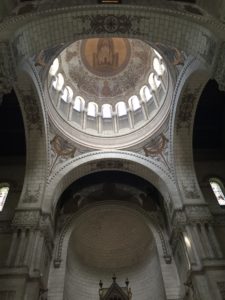
I arrived to France with the notion of Catholicism being the major influence on the culture. To an extent, I was right: there are more churches in Tours alone than in some dioceses in America. Lucky for me, I don’t have to walk too far Sunday morning to find a mass, which gives me a few extra minutes for my grasse matinée (essentially, sleeping in). France is a country that is extremely proud of its history, of which the Church plays a major role. Feast days are the basis for many of the national holidays and Sundays are a day of rest when just about everything is closed. However, religion itself is considered a very taboo topic. So much so that it’s illegal to wear any religious sign in a public place which gave way to a scandal a few years ago: a Muslim woman was forced by police to take off her hijab she was wearing at the beach. This is a representation of the extremes of the “secularism” which presented itself as religious intolerance in the wake of terrorist attacks.
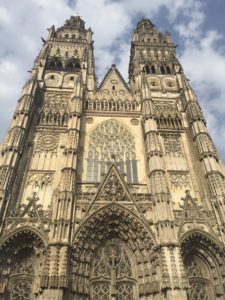
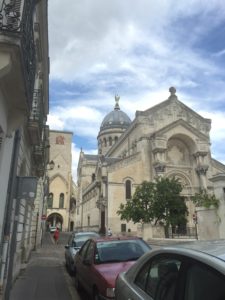
La laïcité was a common topic of discussion in class and was explained by my teacher to be one of the greatest achievements of the French society inspired by the spirit of the Revolution and the Lumières which rejected the influence of Christianity (specifically Catholicism) because it was embedded into a monarchy that the French were not too content with. This mentality seems to rest as a protective measure against any possible chance that the same situation could resurface. For example, in public grade schools, any possible reference to religion is banned. If you want your children to be able to express a religious identity, they have to go to a private school (usually Catholic).
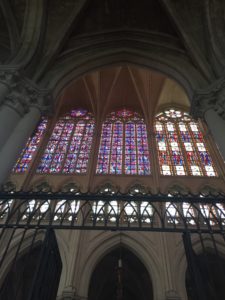
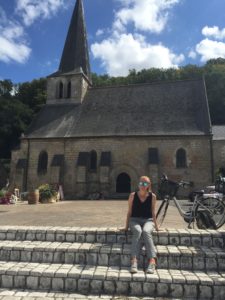
This engrained practice of secularism makes for a very different perspective of faith from the one that we have in the states. It seems to me to be more of a freedom from religion than a freedom of religion. This may be too much speculation of this cultural observation, but I think it’s the negative connotation that comes with religion that results in a 80% professed Catholic with only 5% among them who practice and attend mass regularly. France has some of the most elaborately decorated and architecturally complex Churches, but when Sunday comes around, a lot of them are very empty.
I know this can be a controversial topic, but it plays a huge role in France’s culture. So on a lighter note… I took advantage of this second to last week in France to bike a grand total of 24 miles to Villandry, a chateau along the Cher river which has some of the most beautiful gardens I’ve ever seen. Being in the Loire Valley, I’m fortunate enough to have easy access to many chateaus by bike, train, or bla-bla car (which is a ride sharing program). Like the many churches, the numerous chateaus are an important part of France’s patrimoine (heritage) and frequently have vineyards, as well. History and wine, what’s not to love about French castles??
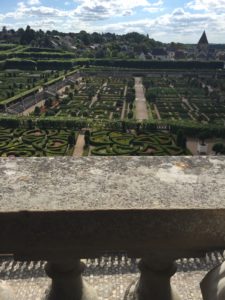
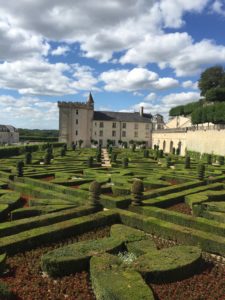
À la semaine prochaine ! // See you next week!